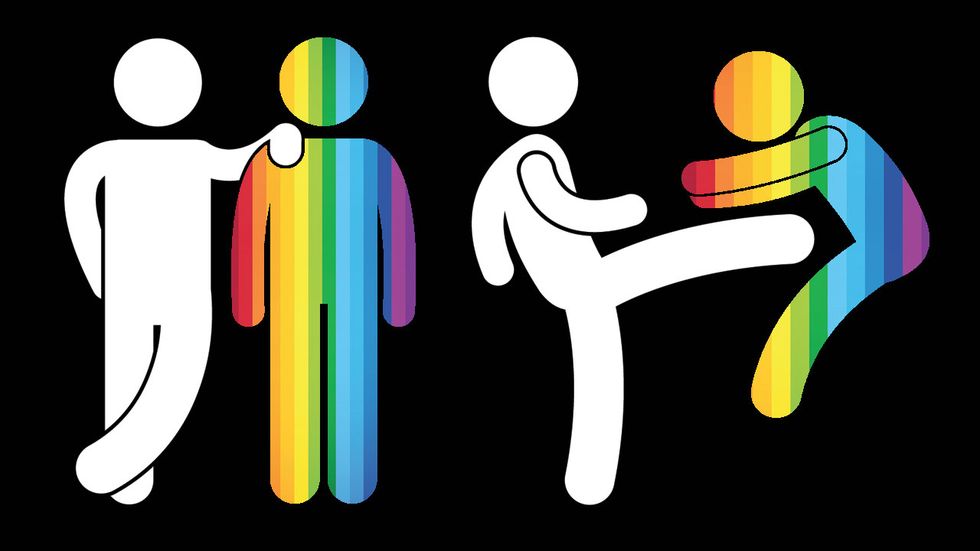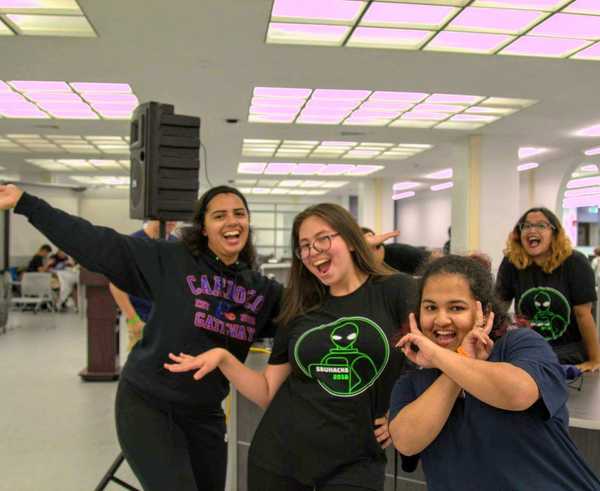The first time I ever “came out,” I was sitting on the white-carpeted floor of my best friend’s bedroom, chewing a lavender-flavored hard candy. She was showing me a new journal from Barnes and Noble, leather-bound and exquisite, and she told me that it would be her “book of secrets.” She was gathering secrets from all of her friends to write down inside of it--only the deepest and darkest would do. So I told her, stumbling over my words, that I thought I liked girls.
That was seven years ago. My most recent “coming out” was last Wednesday.
There’s a certain exhausting infinitude to the process of coming out that a lot of straight and cis people seem unable to grasp. No matter how many social cues we proudly present, people can and will assume that we’re “normal” until proven otherwise. I wear my hair short, use a chest binder and packer, and dress in masculine-cut clothing, and I’m still read consistently as a woman, unless I bother to say otherwise. People at least tend to assume that I’m a lesbian, but my girlfriend, who is by all means fem-presenting, is often pinned down as straight by the same strangers.
References to sexuality are made much more often than many straight people realize. Talk about potential relationships is built into our everyday conversations, and it’s more than a little bit of a sting every time that we realize someone thinks we’re straight. It’s worse to realize that these same friendly acquaintances may or may not be accepting if we decide to correct them. When I told that first friend that I liked girls, she took it with a nod and a smile, but not everyone has been the same. Hands have tensed, eyes have frozen over, excuses have been made. Too many times, I’ve realized that a potential friend was only willing to like me on the condition that I was straight--and when I said otherwise, they couldn’t get away quickly enough.
And this is to say nothing of gender. For cisgender people, references to gender are subconscious, but for the rest of us, every throwaway pronoun has the potential to land like a gut punch. How exactly does one reply to “We’re in the same English seminar; she sits next to me” with “I’m not a girl?” It feels rude. It feels abrupt. And there’s that constant, constant possibility of the expression cooling, the smile slipping away.
Straight and cis people like to complain that we focus too much on our gender and sexuality, or even that we cling to labels in lieu of a personality. That may be true. But it isn’t our fault. It’s theirs. You have given us a culture in which every day is a battle not only for our acceptance, but for simple acknowledgement of our existence. National Coming Out Day, and the concept of “coming out” in general, exists because we continue to be seen as violations of the cisgender, heterosexual norm.
Coming out is not a one-time decision. It is an endless, exhausting process. We don’t want to overstate our sexualities or genders: we just want to live as we are and love whom we will. But right now, that is not possible.



















